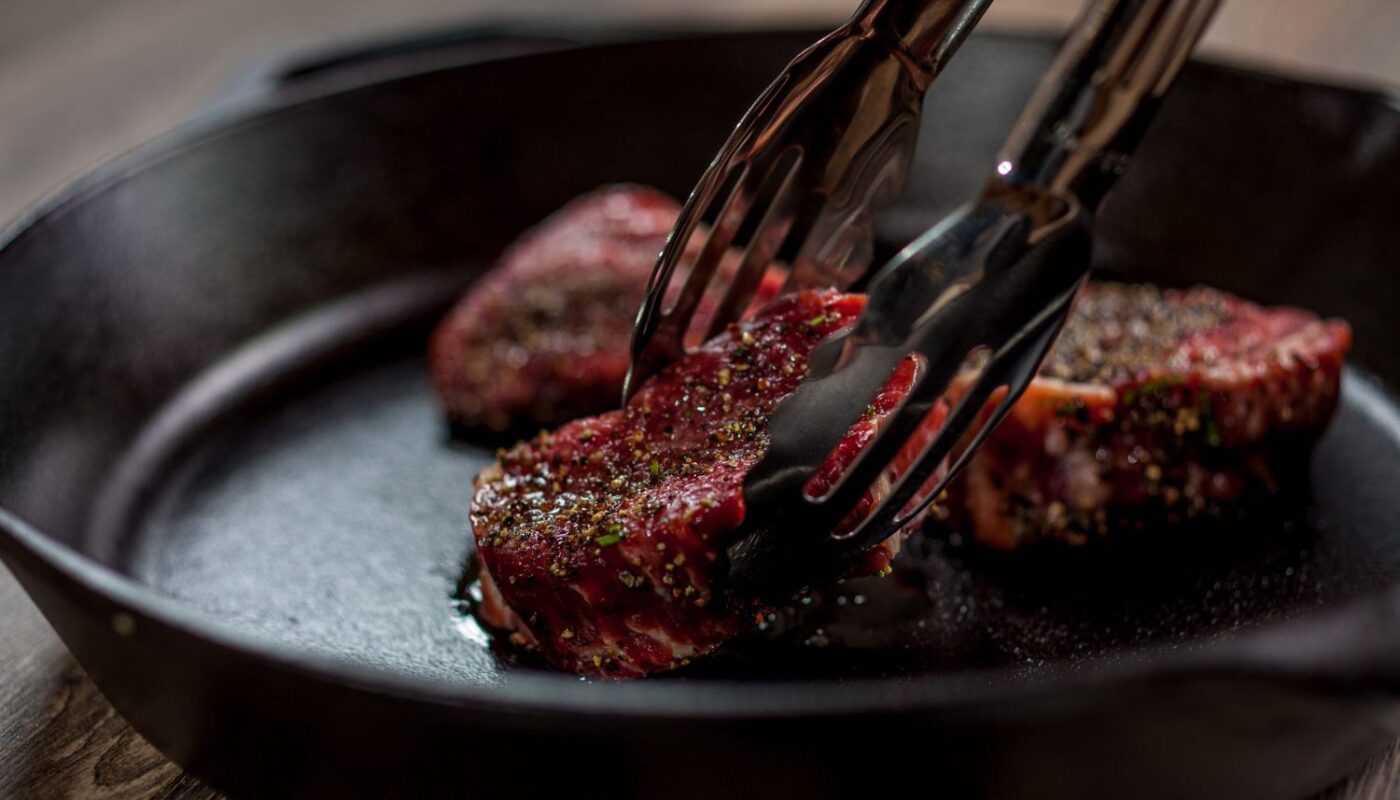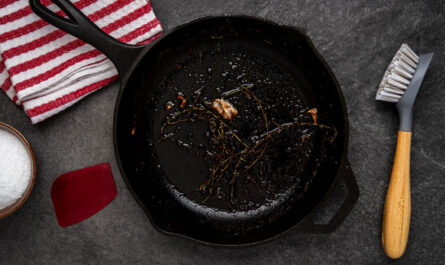How to oil a cast iron skillet might seem like a mystery to many home cooks, but this simple process is a game-changer in maintaining your cookware. Whether you are cooking sushi accompaniments or stir-frying your favorite vegetables, ensuring your skillet is properly oiled is vital. This article provides an in-depth guide to ensure your cast iron skillet stays in excellent condition for many years. Lets dive into this life-changing yet straightforward technique that will leave you delighted!

Why Maintain Your Cast Iron Skillet?
Before we move forward, its essential to understand why oiling your cast iron skillet is vital. Cast iron skillets are durable and versatile, but without proper care, they can rust, lose their non-stick surface, and become challenging to cook with. A well-oiled skillet ensures your favorite meals, like cooking halibut, sausage, or even sushi side dishes, remain enjoyable to prepare without sticking or burning.
When Should You Oil Your Cast Iron Skillet?
Knowing the right time to oil your skillet is crucial for its maintenance. Typically, you should oil your skillet:
- After each use (especially if youve cleaned it with water).
- If you notice the surface is dull or patchy.
- When food starts sticking more than usual during cooking.
Choosing the Right Oil for Your Cast Iron Skillet
The type of oil you use matters a lot when seasoning your skillet. Opt for oils with a high smoke point as they can be heated to a temperature without breaking down. Here are some terrific options:
- Vegetable Oil: Affordable and commonly available.
- Flaxseed Oil: Tremendous for building an even seasoning layer.
- Canola Oil: An approved option for daily use.
Pro Tip: Keep It Natural
Avoid using flavored or seasoned oils as they can leave a residue or unwanted taste on your skillet.
Step-by-Step Guide to Oiling a Cast Iron Skillet
Here is a detailed process that will leave you delighted with your cast iron skillet’s performance:
Step 1: Clean Your Skillet
Start by cleaning your skillet thoroughly. Use hot water and a soft sponge or scrubber, but avoid soap as it can strip away seasoning. Dont forget to check out this skillet prep guide for additional details.
Step 2: Dry It Completely
After washing, dry your skillet completely to avoid any rust forming. You can heat it on your stove for a few minutes to ensure no moisture remains.
Step 3: Apply Oil
Pour a small amount of your chosen oil onto the skillet and use a clean paper towel or cloth to spread it evenly across all surfaces, including the handle and bottom.
Step 4: Heat It Up
Preheat your oven to 375F (190C). Place the skillet upside down in the oven with a baking sheet underneath to catch any drips. Let it bake for an hour, then turn off the oven and allow it to cool before removing.
Common Mistakes to Avoid
How to oil a cast iron skillet is a straightforward process, but here are a few pitfalls to watch out for:
- Using too much oil, which can leave a sticky residue.
- Skipping the heating process, which ensures proper seasoning.
- Storing the skillet without drying, leading to rust.
Integrating Cast Iron in Your Cooking
Once your skillet is seasoned and ready to go, the cooking possibilities are endless. You can prepare delicious sushi rice accompaniments, cook a dry-aged ribeye, or explore one-skillet meals. Check out this Dutch oven recipe guide for more inspiration!
Recommended External Resources
For more recipe ideas that maximize the use of a cast iron skillet, visit Southern Living’s One-Skillet Meals.
Frequently Asked Questions
1. How often should I oil my cast iron skillet?
Its recommended to oil your skillet after each use or when you notice the surface becoming dull or sticky.
2. Can I use olive oil to season my cast iron skillet?
While olive oil is safe to use, its not the best option for seasoning as it has a lower smoke point.
3. What do I do if my skillet rusts?
If rust forms, scrub it away with a steel wool pad, wash it, dry it completely, and re-season the skillet using the steps provided earlier.

Conclusion
With these easy, shocking, and exclusive techniques, you can ensure your cast iron skillet remains the pride of your kitchen for years to come. Whether youre searing a steak, frying eggs, or crafting sushi accompaniments, a properly seasoned skillet will make a tremendous difference. Take care of your cast iron, and it will take care of your meals!
This article contains affiliate links. We may earn a commission at no extra cost to you.




